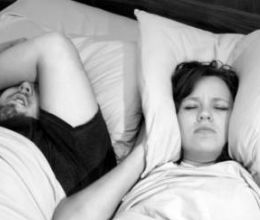Sleep Deprived?
Sleep plays an important role in the health and overall well-being of a person. When you are asleep, your body undergoes a whole lot of repair work which is critical in maintaining your physical, mental and emotional health. Sleep allows the body to rest and is essential for healing.
Sleep enables your brain to function properly. While asleep, your brain is actually forming new pathways to help you learn and remember information. Having a good night’s sleep has been shown to improve learning.
For children and teens, getting sufficient sleep also supports physical growth and development.
The amount of sleep one needs varies with each individual and changes through the life cycle of a person. Newborns and infants sleep up to 18 hours a day whilst preschool and school going children typically require between 11-13 hours of sleep a night. Teens usually need about 9 hours and most adults about 7-9 hours of good sleep.
Causes
 The causes of sleep deprivation are manifold. Stress, overwork or too much play can all affect one’s ability to sleep well. Some may not get good quality sleep due to medical or mental conditions which may disrupt their sleep. However, oftentimes, sleep deprivation is due to unrecognised sleep disorders and these patients may not even be aware of how much of a sleep debt they are accumulating.
The causes of sleep deprivation are manifold. Stress, overwork or too much play can all affect one’s ability to sleep well. Some may not get good quality sleep due to medical or mental conditions which may disrupt their sleep. However, oftentimes, sleep deprivation is due to unrecognised sleep disorders and these patients may not even be aware of how much of a sleep debt they are accumulating.
Sleep apnea results in pauses in breathing during sleep. These pauses can occur 5-30 times or more per hour and can last from a few seconds to a few minutes. This results in poor quality sleep which will leave you feeling fatigued even after a night’s sleep. One of the most common type of sleep apnea is obstructive sleep apnea (OSA) which is caused by the blockage of one’s airway during sleep. Patients who suffer from OSA often snore loudly, experience headaches and have problems with memory and concentration. Some also complain of a dry throat upon waking. Locally, the cases of OSA have been under diagnosed and more needs to be done in terms of patient education.
Some may assume that poor sleep is a normal part of ageing when in fact that is not the case. Whilst it is true that the elderly often find it difficult to sleep for long periods of time or have difficulty getting into deep restful stages of sleep due to an increased sensitivity to changes in their environment like light or noise, it does not mean that their need for sleep decreases with age.
Consequences
When one is suffering from sleep deprivation, one is more susceptible to mood swings and an increased risk of depression. When one has little or poor quality sleep, the immunity system also takes a beating and one may have trouble fighting common infections. Lack of sleep has also been shown to lead to an increased risk of coronary heart disease and heart disease can in turn also interrupt sleep. Sleep deprivation has also been associated with decreased sensitivity to insulin and increased risk of diabetes.
Because sleep helps the body to maintain a healthy balance of hormones that make you feel hungry (ghrelin) or full (leptin), a person who does not get sufficient sleep would end up feeling hungrier that when he/she is well rested. This is due to the fact that when you do not get enough sleep, your level of gherkin goes up and your level of leptin goes down.
Sleep deprivation can also affect one’s attention, memory and concentration. One is usually less productive and more prone to making mistakes. Recent studies also suggest that a lack of sleep leads to an accumulation of amyloid plaques in the brain resulting in an increased risk of Alzheimer’s disease.
Being sleep deprived can have serious and even fatal consequences particularly if you are engaging in activities which require you to be alert. Driving while you are drowsy can be as dangerous as driving under the influence of alcohol. In fact research has shown that it is comparable to driving with a blood-alcohol level of 0.08, the legal limit for intoxication in some countries.
Lack of sleep can also lead to micro sleep, that is when one briefly falls asleep when you are normally awake. Being susceptible to micro sleep can be extremely dangerous as one cannot control micro sleep as one is usually not even aware of it. It can also have disastrous consequences and affect people across different occupations e.g. pilots, drivers, healthcare workers.
Perhaps the greatest danger lies in the fact that some of these patients who are severely sleep-deprived are not even aware of it. This lack of awareness compounds the problem as it usually means that they are not actively doing anything to address these issues and may even think that they are still able to function well even with insufficient or poor quality sleep.
It is therefore important to check with your physician if you find that you are constantly waking up from a night’s sleep still feeling tired and unrested.
Further Reading
The article above is meant to provide general information and does not replace a doctor's consultation.
Please see your doctor for professional advice.
